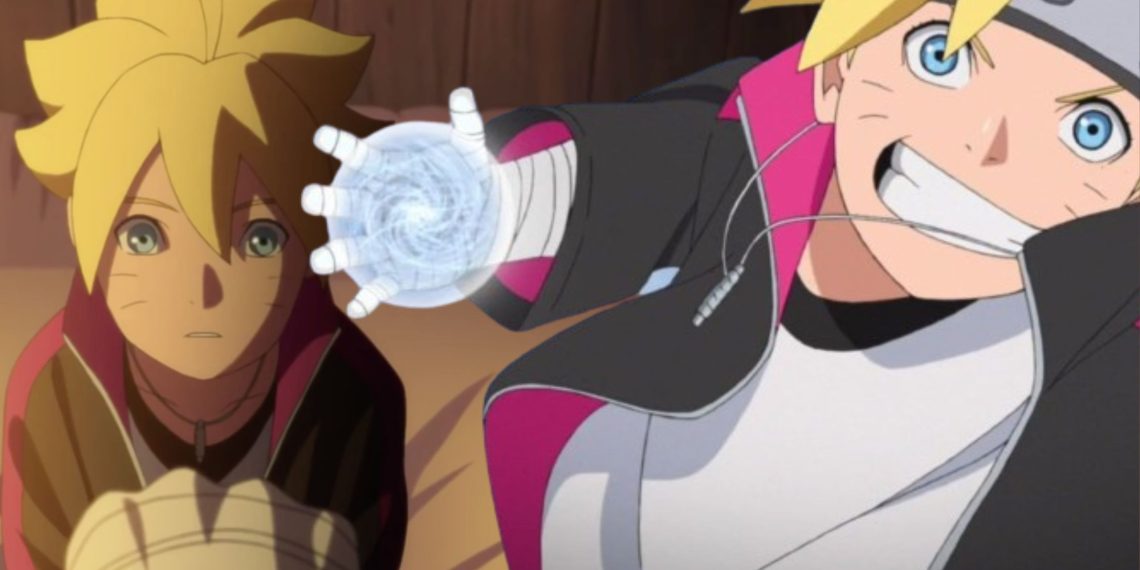The world of anime and manga is one of passion, where fans often express their opinions fervently.
The “Boruto” series has been no exception, drawing both admiration and criticism from its large and dedicated fanbase.
While it is true that the series has faced its share of justified criticism due to certain objectively flawed elements, the weight of carrying the legacy of its predecessor, “Naruto”, has made it a challenging journey.
Yet, amidst the mixed reviews, the latest chapters of the “Two Blue Vortex” manga have brought a fresh wave of excitement and approval.
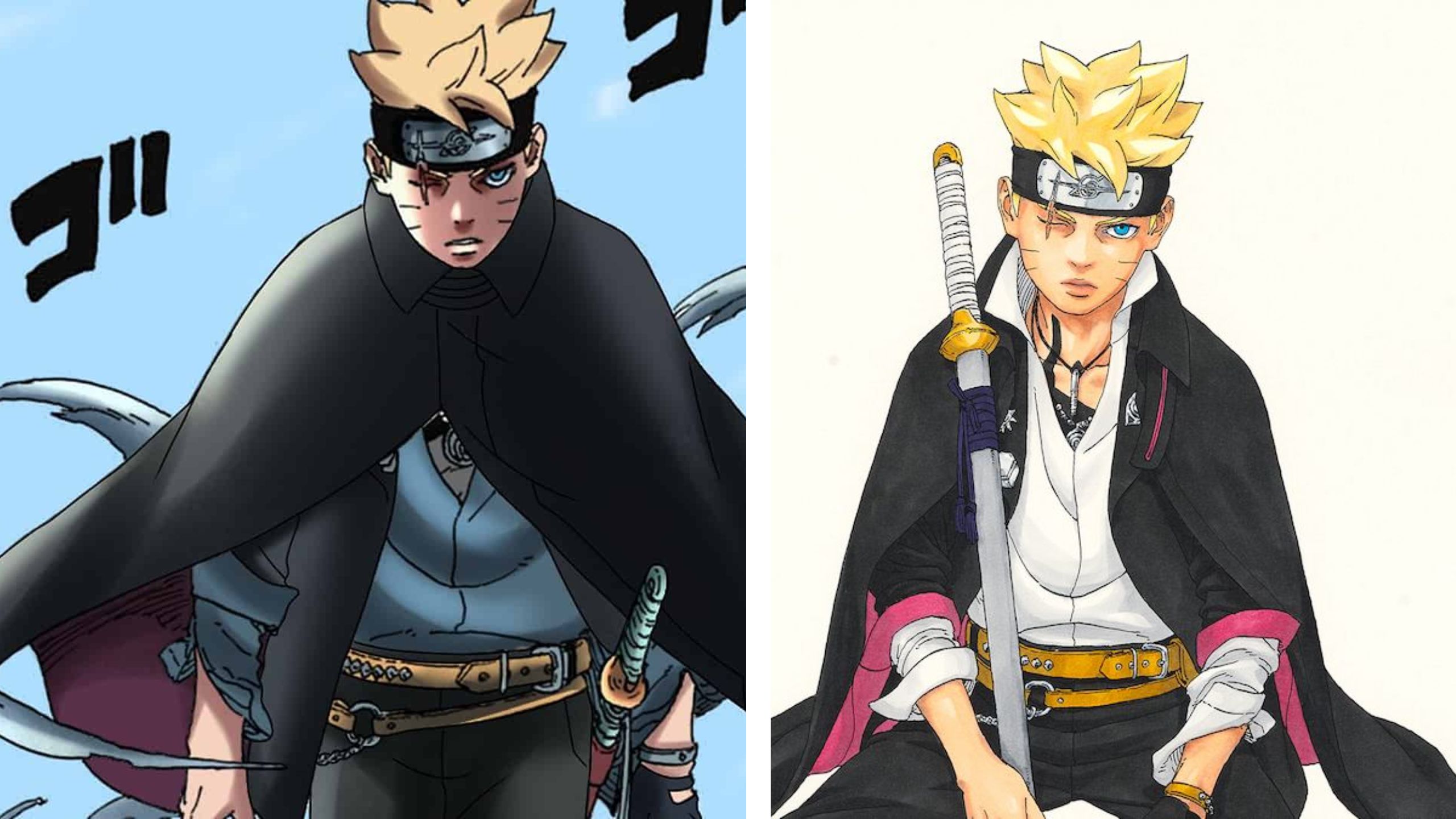
This recent installment has been welcomed with open arms, largely due to the changes that have made the narrative more engaging.
One significant point of discussion has been the protagonist Boruto’s maturity, which some fans credit as a new development in the “Two Blue Vortex” arc.
However, this perception overlooks the fact that Boruto’s maturity is not a sudden transformation; rather, it has been a steady, evolving characteristic of his personality since the series’ inception.
The Early Days of Boruto: From Brat to Budding Hero
In the early stages of the “Boruto” series, the titular character was far from the mature and composed figure some fans now laud in “Two Blue Vortex”.
Initially, Boruto was portrayed as a bratty, irresponsible child who often shirked accountability for his actions and displayed a rebellious streak.
His behavior during the “Chunin Exams” is a prime example of his immaturity. Boruto’s decision to cheat during the exams was not just a minor indiscretion; it was a major scandal, considering that he was the son of Naruto Uzumaki, the Seventh Hokage.
This act of dishonesty highlighted his inability to cope with the pressures of living up to his father’s legacy, a burden that weighed heavily on him.
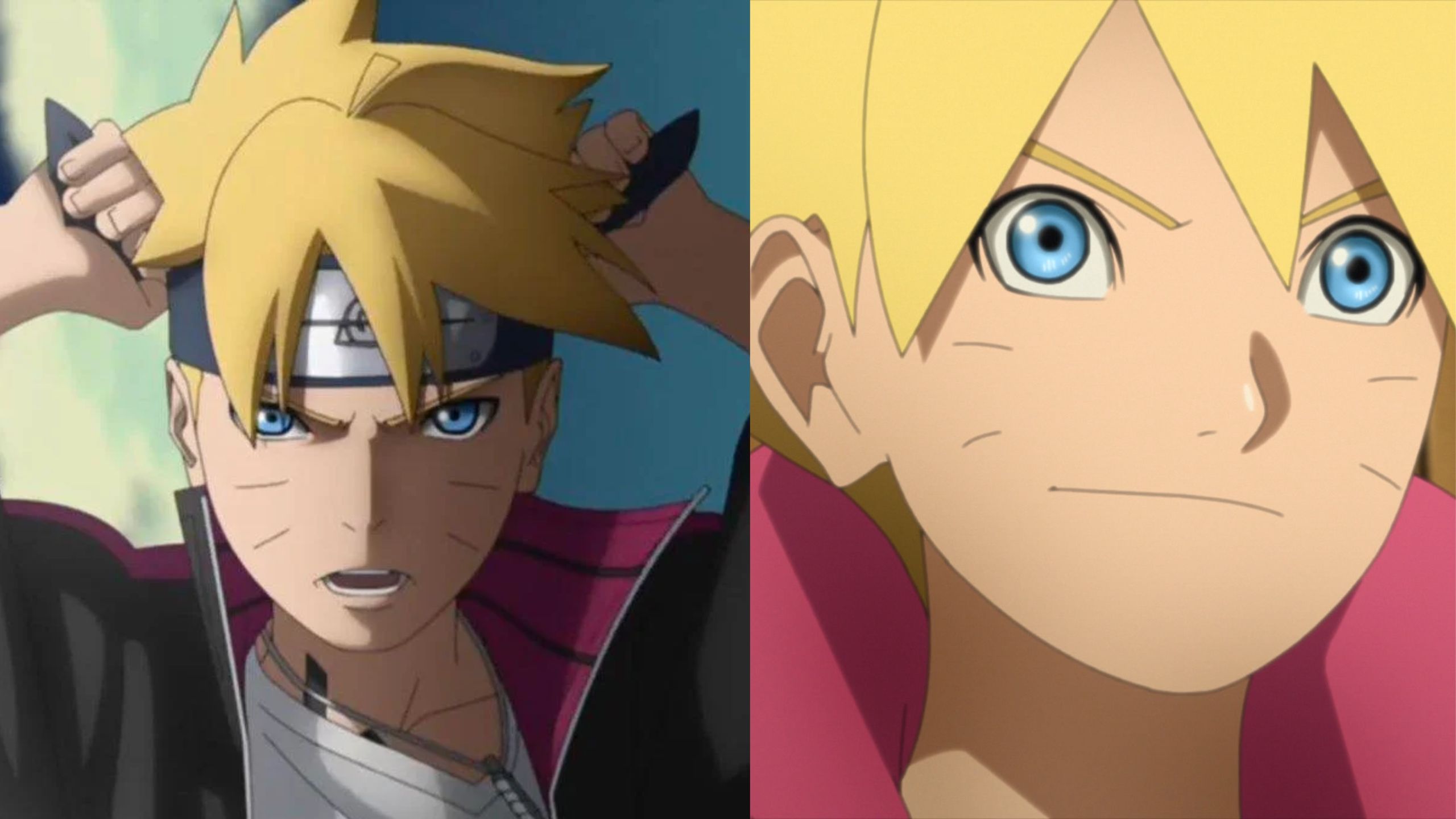
Fans were quick to criticize Boruto’s actions, and their disapproval was not unfounded. At that point in the series, Boruto was indeed immature, and his conduct warranted the negative reception it received.
His bratty behavior, combined with his refusal to accept responsibility, painted a picture of a young boy struggling to find his place in a world where his father was a legendary figure.
However, as the series progressed, so did Boruto’s character, and this evolution is something that has often been overshadowed by the initial wave of criticism.
Journey Towards Accountability and Understanding
One of the most significant aspects of Boruto’s character development has been his gradual acceptance of responsibility.
As the story unfolded, Boruto began to realize the consequences of his actions and the importance of accountability.
This shift in his mindset marked the beginning of his journey toward maturity, a journey that would see him evolve from a rebellious child into a thoughtful young ninja.
A pivotal moment in Boruto’s development was his changing attitude towards his father.
Initially, Boruto harbored resentment towards Naruto, blaming him for being an absent father and prioritizing his duties as Hokage over his family.
This resentment was further fueled by Boruto’s perception that Naruto’s success came at the cost of their relationship.
However, as Boruto grew older, he began to see things from his father’s perspective.
He started to understand the immense responsibility that came with being the Hokage and the sacrifices Naruto had to make for the greater good of the village.
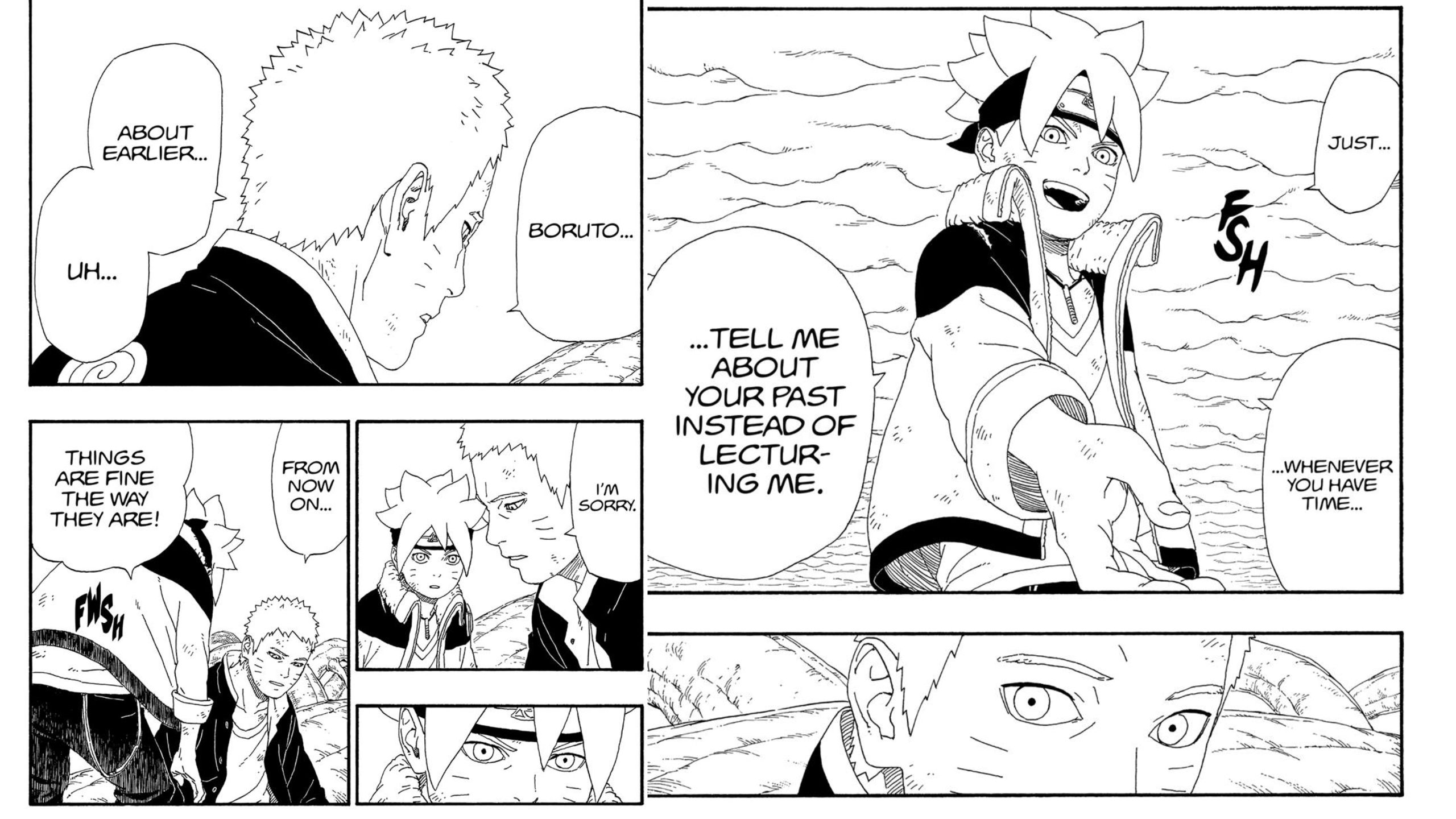
This newfound understanding did not come easily. There were times when Boruto specifically sought out Naruto’s flaws, perhaps as a way to justify his own feelings of anger and frustration.
But as he learned more about his father’s journey the hardships, the determination, and the relentless pursuit of his dreams – Boruto’s attitude began to change.
He realized that Naruto’s achievements were not handed to him on a silver platter; they were the result of years of perseverance and hard work.
Significance of Himawari in Boruto’s Growth
While Boruto’s relationship with his father was a key factor in his maturity, his bond with his younger sister, Himawari Uzumaki, also played a crucial role.
Boruto’s love for Himawari was evident from the beginning, and it was this deep affection that often fueled his frustration with Naruto.
Boruto knew the importance of having a father figure in a child’s life, and he felt that Naruto’s absence was unfair to Himawari, who needed their father’s presence and guidance.
This protective instinct towards Himawari was particularly apparent during a heated argument between Boruto and Naruto on Himawari’s birthday.
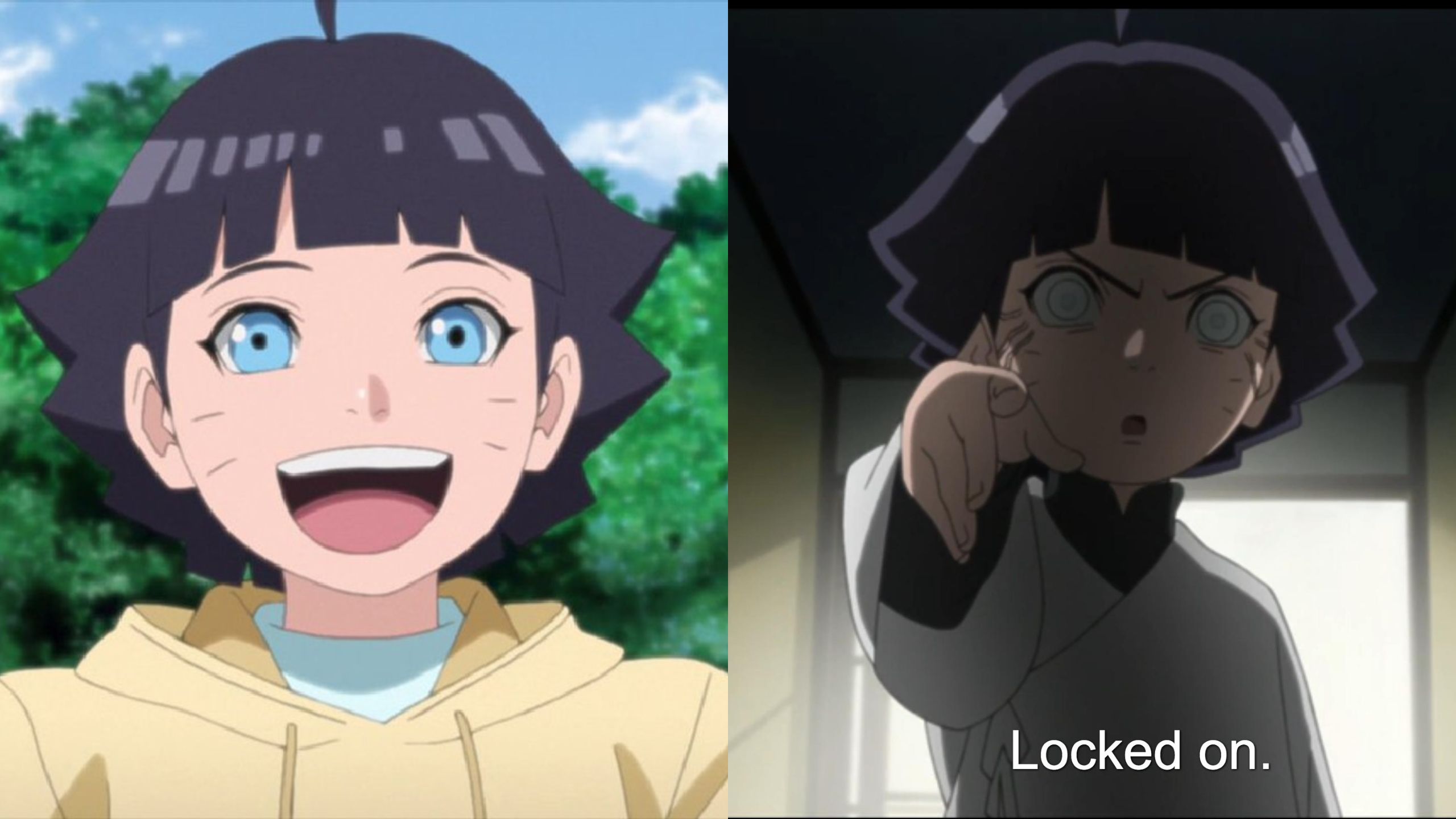
Boruto’s anger was not just about his own feelings of neglect; it was about his concern for his sister’s well-being.
He urged Naruto to be more present at home, not for his sake, but for Himawari’s.
This moment highlighted Boruto’s growing awareness of the needs of those around him, a clear sign of his maturing outlook on life.
Boruto’s sense of responsibility towards Himawari was a far cry from the selfish, bratty behavior he exhibited in the early days of the series.
It showed that he was beginning to understand the complexities of relationships and the importance of considering the feelings of others.
This was a significant step in his journey towards becoming a more mature and empathetic individual.
Path of Self-Discovery
One of the most compelling aspects of Boruto’s character development has been his quest for self-discovery.
As the son of the Seventh Hokage, Boruto was born into a legacy that came with immense pressure and expectations.
For much of his early life, he struggled with this burden, often rebelling against the idea of following in his father’s footsteps.
However, as he matured, Boruto began to realize that his path did not have to mirror Naruto’s. Instead, he could forge his own destiny, one that was uniquely his own.
This realization was a turning point for Boruto. It marked the beginning of his journey towards finding his own identity, separate from the shadow of his father’s legacy.
He started to embrace the idea that he could honor his father’s achievements while also pursuing his own goals and dreams.
This shift in perspective was not just about gaining maturity; it was about Boruto taking control of his own narrative and deciding what kind of person he wanted to become.
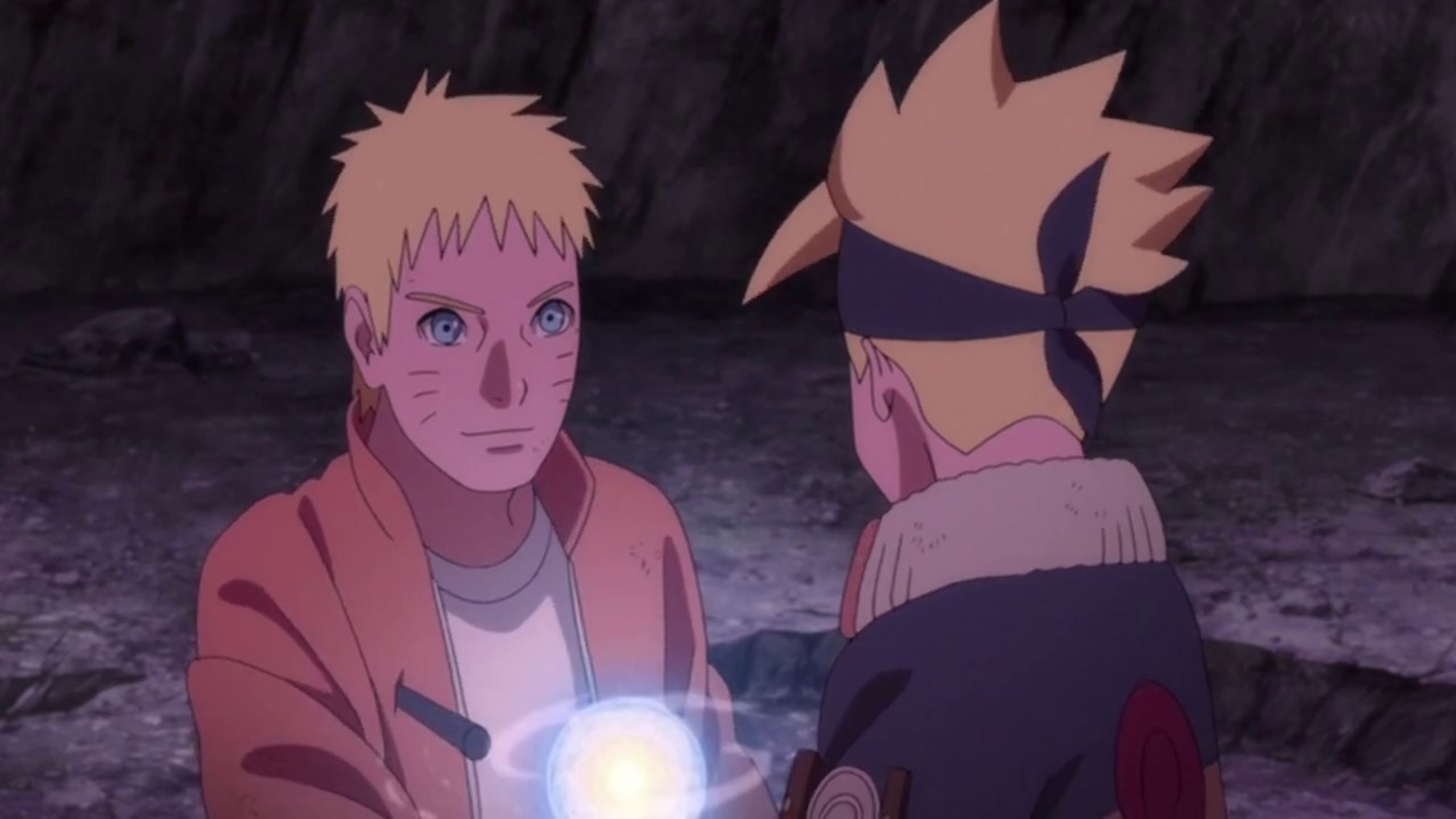
Boruto’s determination to carve out his own path was evident in his actions and decisions.
He no longer saw himself as merely “the son of Naruto Uzumaki,” but as an individual with his own strengths, weaknesses, and aspirations.
This newfound sense of self was a crucial part of his maturation process and played a significant role in shaping the person he would become in the “Two Blue Vortex” arc.
Role of Adversity in Boruto’s Growth
Adversity has always been a catalyst for character development in the “Naruto” universe, and Boruto is no exception.
Throughout the series, Boruto faced numerous challenges and hardships that tested his resolve and forced him to grow.
From dealing with the consequences of his actions during the “Chunin Exams” to facing powerful enemies who threatened the peace of his village, Boruto’s journey was fraught with obstacles that pushed him to his limits.
These experiences were instrumental in shaping Boruto’s character. Each challenge he faced taught him valuable lessons about courage, perseverance, and the importance of making tough decisions.
For example, Boruto’s encounters with formidable foes like Momoshiki and Isshiki forced him to confront the harsh realities of being a ninja and the sacrifices that came with it.
These battles were not just physical confrontations; they were also tests of Boruto’s mental and emotional strength.
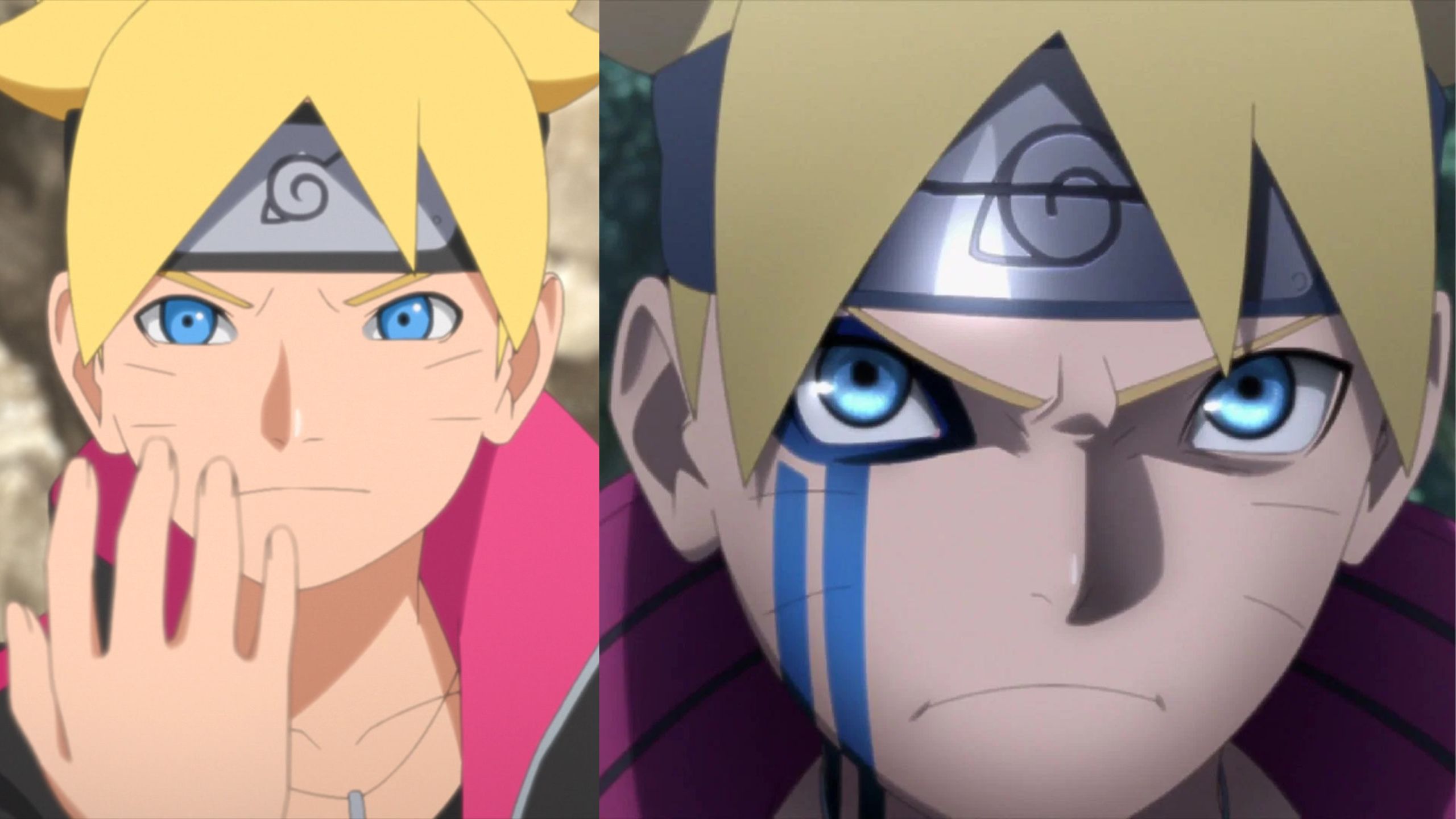
Through these trials, Boruto learned the importance of resilience and the value of standing up for what he believed in, even in the face of overwhelming odds.
These lessons were not lost on him, and they played a significant role in his evolution from a reckless, impulsive child to a thoughtful, determined young man.
Stoicism of Boruto: A Sign of Maturity
One of the key traits that fans often associate with maturity is stoicism, and Boruto’s portrayal in “Two Blue Vortex” exemplifies this quality.
However, it is important to recognize that this stoicism is not a new development; it is a continuation of the growth that Boruto has been undergoing since the early days of the series.
As Boruto matured, he learned to control his emotions and approach challenges with a calm, measured demeanor.
A wide misconception is that Boruto is selfish and only thinks about himself, when it's actually him looking out for Himawari
Mature enough to put his feelings aside to care for his sister's, because he doesn't want her to grow in the same circumstances Boruto did with Naruto pic.twitter.com/DGA8dJdZfm
— Hσwl (@howlxithree) July 24, 2024
This shift in his behavior was a clear sign of his growing maturity and his ability to handle the pressures of being a ninja.
Boruto’s stoicism was particularly evident in his interactions with other characters. He no longer reacted impulsively or let his emotions dictate his actions.
Instead, he approached situations with a level-headedness that reflected his newfound maturity.
This change in behavior was not just about appearing more mature; it was about Boruto learning to steer across the complexities of life as a ninja and a member of the Uzumaki clan.
This stoic demeanor was also a reflection of Boruto’s inner strength.
Throughout the series, Boruto faced numerous challenges that tested his resolve, and each time, he emerged stronger and more determined.
This resilience was a key part of his character development and contributed to his final growth as a person.
Overlooked Growth in the Original Series
While “Two Blue Vortex” has undoubtedly showcased Boruto’s maturity, it is essential to acknowledge that his growth did not begin with this latest installment.
The original “Boruto” series laid the foundation for the character’s development, and many of the traits that fans now admire in “Two Blue Vortex” were already present in the earlier stages of the series.
Unfortunately, much of Boruto’s growth in the original series was overshadowed by the criticism and negativity that surrounded the show.
The fanbase’s tendency to focus on the series’ flaws often led to a dismissal of the more nuanced aspects of Boruto’s character development.
However, for those who paid close attention, it was clear that Boruto was maturing and evolving as the series progressed.
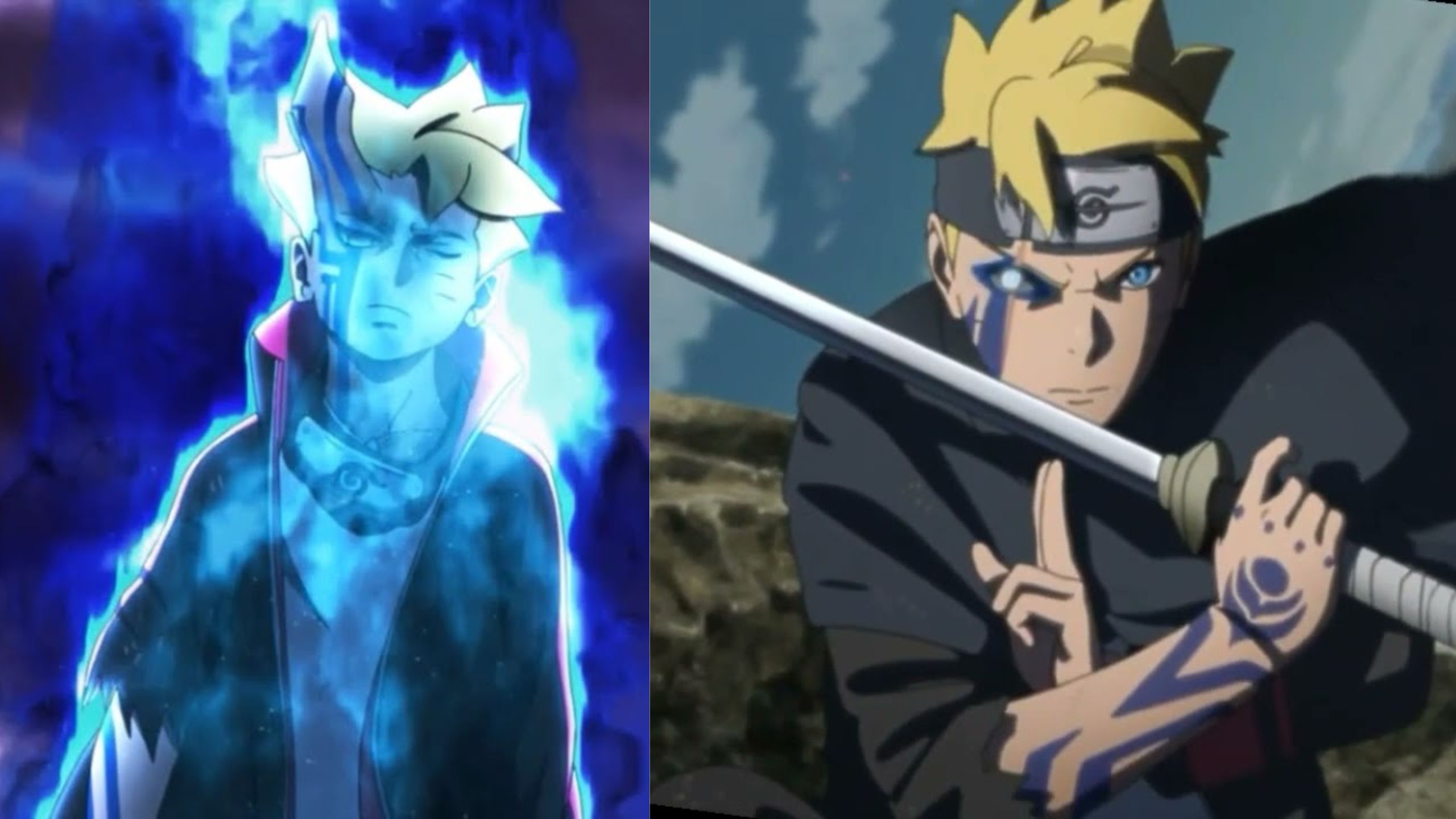
Boruto’s journey towards maturity was not a sudden transformation; it was a gradual process that took place over time.
Each experience, each challenge, and each interaction contributed to his growth, shaping him into the character fans now see in “Two Blue Vortex”.
By recognizing this continuity, we can appreciate the depth and complexity of Boruto’s character and the careful attention the writers have given to his development.
A Maturity Built Over Time
In the end, Boruto’s maturity in “Two Blue Vortex” is not a new development but rather the culmination of years of growth and evolution.
From his early days as a bratty, irresponsible child to his current portrayal as a thoughtful and determined young man, Boruto’s journey has been one of steady progression.
His relationships with his father and sister, his encounters with adversity, and his quest for self-discovery have all played crucial roles in shaping the person he has become.
The criticism that the series has faced over the years has often overshadowed the more positive aspects of Boruto’s character development.
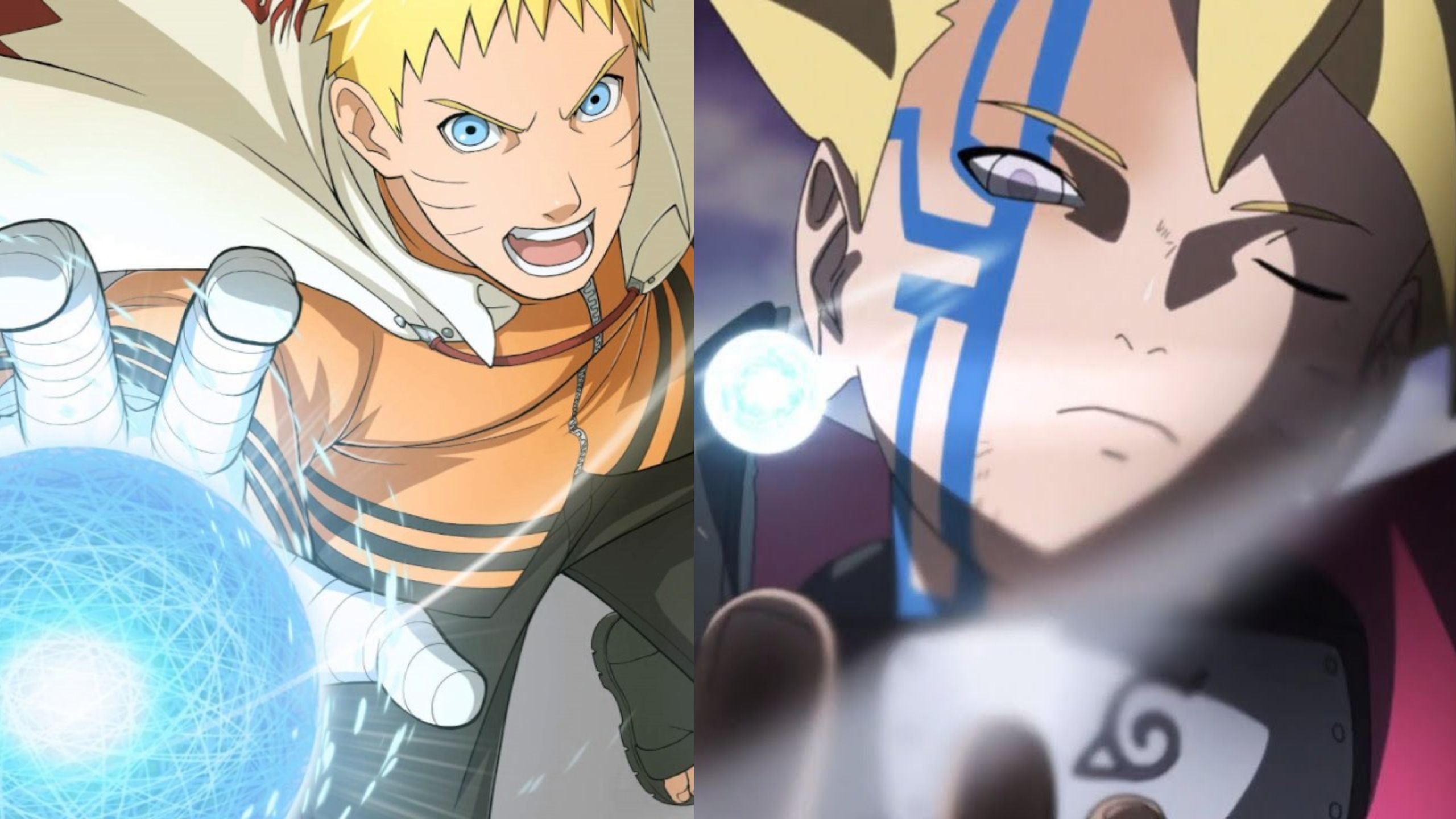
However, by taking a closer look at his journey, it becomes clear that Boruto’s maturity is not just a result of the “Two Blue Vortex” arc but a continuation of the growth that began long ago.
As we continue to follow Boruto’s journey, it is important to remember that his maturity is not a sudden change but the result of years of careful character development.
By recognizing this, we can fully appreciate the depth and complexity of Boruto’s character and the story that has been crafted around him.
Stay tuned for more anime and manga news as 2024 progresses.


